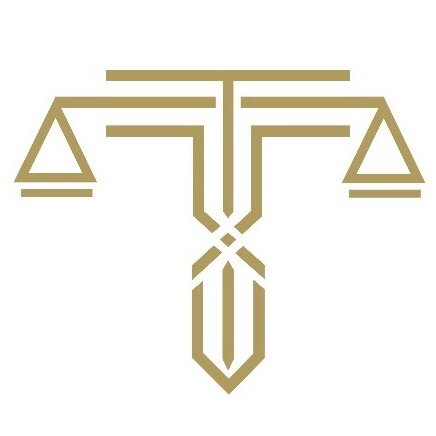Best Contract Lawyers in Dammam
Share your needs with us, get contacted by law firms.
Free. Takes 2 min.
List of the best lawyers in Dammam, Saudi Arabia
Saudi Arabia Contract Legal Articles
Browse our 1 legal article about Contract in Saudi Arabia written by expert lawyers.
- Saudi Civil Transactions Law Guide for Commercial Contracts
- The Civil Transactions Law (CTL), effective December 2023, is Saudi Arabia's first comprehensive codification of contract law, moving away from uncodified Sharia principles. Good faith is a mandatory statutory requirement that applies to both the negotiation and the execution of all commercial contracts. Liquidated damages clauses are enforceable, but Saudi... Read more →
About Contract Law in Dammam, Saudi Arabia
Contract law is a body of law that governs the legality of agreements made between two or more parties. In the kingdom of Saudi Arabia and notably Dammam, contract law is very significant owing to the city's growing status as a trade and commerce hub. The legal system of Saudi Arabia is primarily based on Islamic law, known as Sharia law, so contract law in Dammam draws heavily from Islamic principles on ethical trade, contract fulfillment, and dispute resolution. Therefore, understanding the specifics of this setting is very crucial for all parties involved in a legal contract.
Why You May Need a Lawyer
There are several situations where you might need a lawyer in Dammam. If you are drawing up a contract, especially one that involves a large sum of money, you should hire a lawyer to ensure the contract is valid under Saudi law. Lawyers are also required when there are disputes in interpreting a contract, or when one party claims a breach of contract. Moreover, when dealing with international contracts, the intricacies of Saudi contract law may require the specialist knowledge of a trained lawyer.
Local Laws Overview
In Dammam, the law dictates that all parties involved in a contract are legally bound to fulfill their obligations as stipulated in the agreement. Non-fulfillment can lead to severe penalties. Furthermore, under Saudi law, terms and conditions of contracts must be transparent, fair, and ethical, with no room for ambiguity. Any form of deceit in contracts is strictly against the law. Additionally, contracts involving illegal activities are null and void. Given these stringent regulations, expert advice can be helpful when dealing with contractual matters.
Frequently Asked Questions
1. How binding are oral contracts in Dammam?
While in some situations oral agreements might be considered valid, without written evidence, they can be challenging to enforce. It's recommended to always have contracts documented in writing.
2. Can contracts be made in languages other than Arabic?
Although contracts can be written in other languages, for the purpose of enforcement in Saudi courts, Arabic is the official language. Therefore, it is advisable to have all contracts translated into Arabic.
3. What legal remedies are available for breach of contract?
Saudi law offers various remedies for breach of contract, including damages, specific performance, and rescission of the contract. The appropriate remedy depends on the nature of the breach.
4. Are electronic contracts legally valid?
Electronic contracts are generally considered valid as long as the necessary contractual elements are present. However, certain types of contracts have specific formal requirements.
5. Can I terminate a contract at any time?
Contracts usually specify the terms for termination. Unilateral contract termination might lead to legal consequences unless it's done under agreed-upon circumstances.
Additional Resources
The Ministry of Commerce in Saudi Arabia provides resources and guidelines involving contracts, including standard form contracts for various types of transactions. It’s also advisable to review the Saudi Arabia Law of Obligations, a legislative comment on contract law.
Next Steps
If you need legal assistance, consider consulting a local lawyer who specializes in contract law. They can provide you with appropriate legal advice and equip you with the knowledge to handle your specific situation appropriately. Ensure you gather all relevant documents involving your contract before your consultation to help your lawyer understand your case better.
Lawzana helps you find the best lawyers and law firms in Dammam through a curated and pre-screened list of qualified legal professionals. Our platform offers rankings and detailed profiles of attorneys and law firms, allowing you to compare based on practice areas, including Contract, experience, and client feedback.
Each profile includes a description of the firm's areas of practice, client reviews, team members and partners, year of establishment, spoken languages, office locations, contact information, social media presence, and any published articles or resources. Most firms on our platform speak English and are experienced in both local and international legal matters.
Get a quote from top-rated law firms in Dammam, Saudi Arabia — quickly, securely, and without unnecessary hassle.
Disclaimer:
The information provided on this page is for general informational purposes only and does not constitute legal advice. While we strive to ensure the accuracy and relevance of the content, legal information may change over time, and interpretations of the law can vary. You should always consult with a qualified legal professional for advice specific to your situation.
We disclaim all liability for actions taken or not taken based on the content of this page. If you believe any information is incorrect or outdated, please contact us, and we will review and update it where appropriate.

















